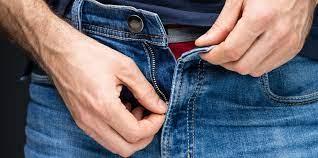Blue balls can develop when an erection lasts for a long time without an orgasm—also called “epididymal hypertension,” this condition, while occasionally uncomfortable, it rarely gets severe. But it can also result in testicular pain, discomfort, and heaviness.
Contrary to what the moniker “blue balls” implies, the testicles usually don’t turn blue. However, a bluish or purplish colour on the testicles may indicate a more dangerous condition called testicular torsion.
Why does blue balls occur?
The blood veins to the penis and testicles expand when people with male sexual organs are stimulated, allowing a higher volume of blood to flow. This blood gradually stiffens and expands the penis, resulting in an erection.
This blood usually comes out after an orgasm or as a result of lowered physical stimulation. Some persons who become overly excited for an extended period of time without a release or reduction in arousal may experience excessive blood retention in the vaginal region. This could result in discomfort and pain.
Treatment
Blue balls is a temporary aching sensation in the testicles that should pass once the extra blood flows away from the area and the blood pressure returns to normal. It does not usually last for long.
People can relieve blue balls by ejaculating through masturbation or during sex with a consenting partner. If a person cannot or does not wish to masturbate, they can use other techniques to relieve the blood pressure and end the arousal.
Some ways to reduce arousal include:
-
focusing on work or problem solving as a distraction
-
taking a cold shower to help restrict blood flow to the genitals
-
lying down to increase the blood flow away from the testicles
-
exercising encourages normal blood flow in the body
-
lifting something heavy to exert pressure on other areas of the body, if possible
-
applying a warm compress to the testicles to ease the pain
People may find that taking over-the-counter (OTC) pain relievers, such as ibuprofen, can help treat more intense pain.
Anyone who experiences severe or long-lasting pain in the testicles or has any symptoms of the conditions below should seek medical attention.
Other potential root causes of testicular pain
These could consist of:
-
diabetic nerve damage
-
epididymitis
-
ureteral stones
-
mumps
-
orchitis
-
UTIs and STIs
-
prostate cancer
-
skinny jeans
When to visit a doctor
Typically, you won’t need to visit the doctor about blue balls. You might, however, require medical advice if you’re also going through:
-
Unrelated to being aroused discomfort
-
groin pain
-
a lower back ache
-
a testicular mass






















